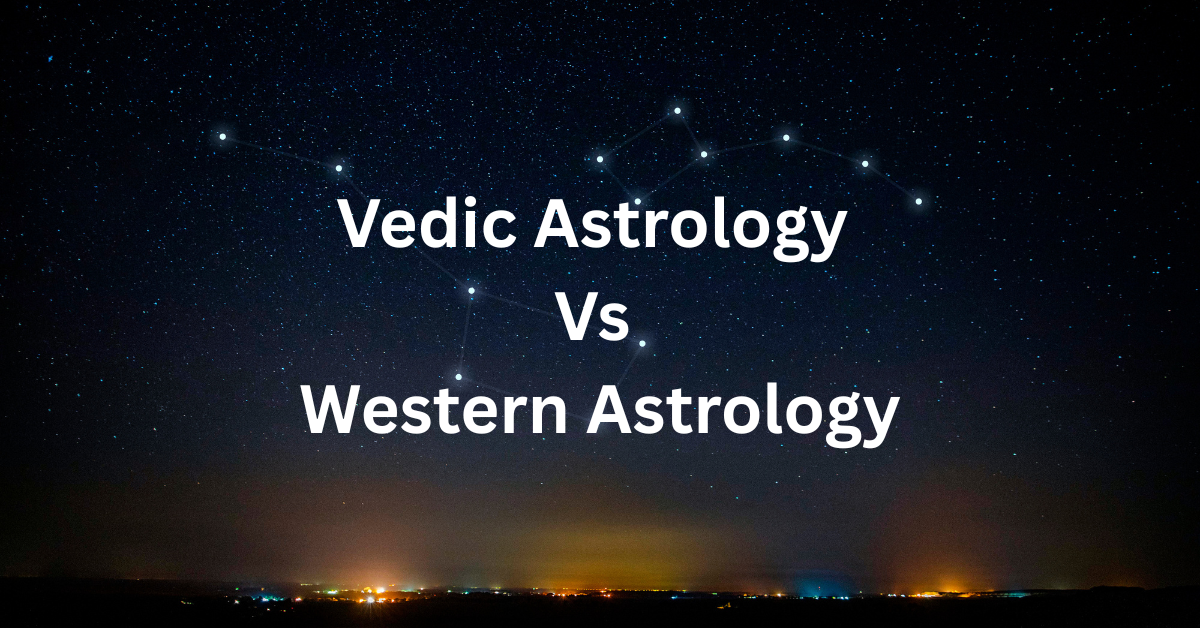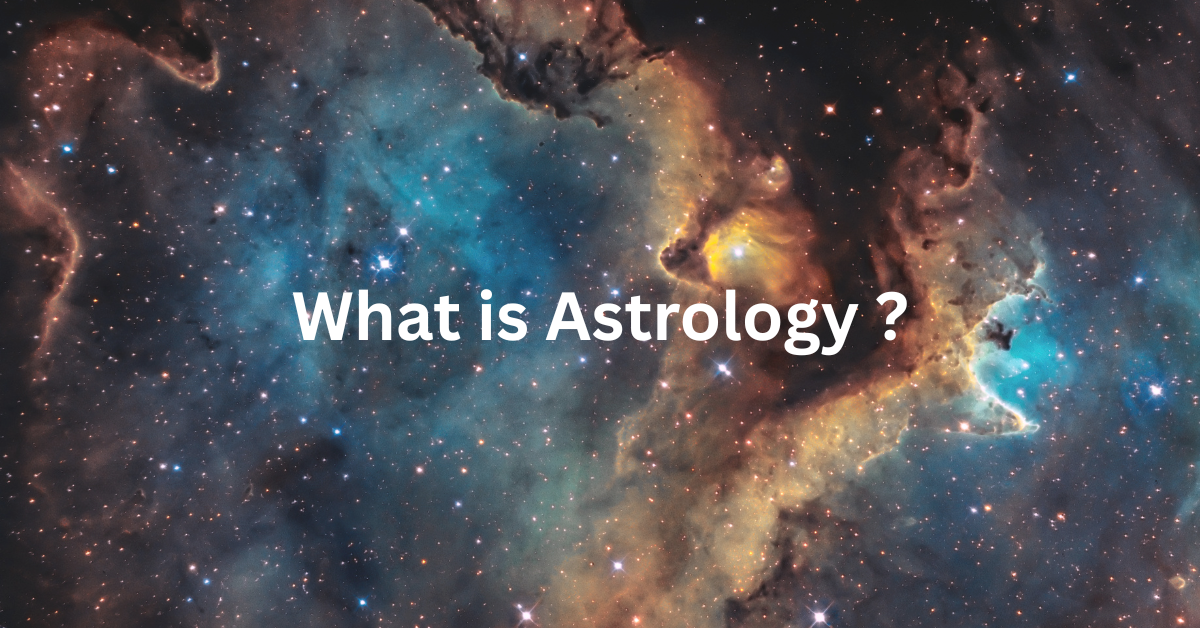Vedic Astrology vs Western Astrology :- Astrology has fascinated humans for millennia. It offers insights into our personalities, life events, and even future possibilities by studying the positions and movements of celestial bodies. Two of the most widely known systems of astrology today are Vedic Astrology, originating from ancient India, and Western Astrology, practiced predominantly in the West. While they share common ground in observing the stars, their approaches, techniques, and philosophies differ considerably.
If you’ve ever wondered how Vedic Astrology compares to Western Astrology and which system might resonate more with you, this comprehensive guide will clarify their key differences and help you understand what makes each unique.
What is Vedic Astrology?
Vedic Astrology, also called Jyotish Shastra (the science of light), is a deeply spiritual and scientific astrological system rooted in the ancient Vedas, India’s oldest sacred scriptures. It is believed to be over 5,000 years old and has been practiced and refined by sages through generations.
At its core, Vedic Astrology studies the impact of celestial bodies — including the Sun, Moon, planets, and lunar nodes — on human life and the natural world. It uses a sidereal zodiac, which aligns the zodiac signs with the actual constellations visible in the night sky. This alignment is critical because it accounts for the gradual shift in Earth’s orientation called precession, which Western astrology’s tropical system does not.
Vedic Astrology also incorporates unique concepts like Nakshatras (27 lunar mansions), Dashas (planetary periods), and divisional charts that allow highly detailed and specific life predictions. It is widely used in India for everything from personal guidance and matchmaking to choosing auspicious timings for important events like weddings and business openings.
What is Western Astrology?
Western Astrology has its roots in Babylonian, Greek, and Roman traditions and developed significantly during the Renaissance. It primarily uses the tropical zodiac, which is based on the Earth’s seasons rather than the actual positions of constellations.
In Western Astrology, the zodiac signs are fixed relative to the equinoxes and solstices, meaning the first degree of Aries always starts at the vernal equinox, regardless of the stars’ actual locations.
Western Astrology focuses heavily on the Sun sign, which is determined by the Sun’s position at the time of birth and is widely popular in horoscopes. It also uses the positions and aspects of the Moon, planets, and other points like the Ascendant to interpret personality traits, psychological tendencies, and life cycles.
While it tends to emphasize personal growth, psychological insights, and symbolic meanings, Western Astrology also offers predictive techniques based on planetary transits, progressions, and solar returns.
Key Differences Between Vedic Astrology Vs Western Astrology
1. Zodiac System: Sidereal vs. Tropical
One of the most significant differences lies in the zodiac system each uses.
- Vedic Astrology’s sidereal zodiac is anchored to the actual constellations as they appear in the sky. Because of the Earth’s axial precession (a slow wobble in Earth’s rotation), the stars have shifted roughly 23–24 degrees over the past 2,000 years. Vedic Astrology adjusts for this, so its zodiac signs align with the current position of the constellations.
- Western Astrology’s tropical zodiac ignores precession and fixes the start of Aries to the vernal equinox (spring equinox). This means the signs are tied to seasons, not stars, and the signs gradually drift away from the constellations they’re named after.
Result: Your Sun sign in Western Astrology might be different from your Sun sign in Vedic Astrology.
2. Focus on the Moon and Nakshatras
- Vedic Astrology places great emphasis on the Moon sign (the zodiac sign where the Moon is located at birth) because the Moon governs the mind and emotions. It also uses Nakshatras, 27 specific lunar constellations, each with distinct characteristics influencing personality and destiny.
- Western Astrology prioritizes the Sun sign for identity and ego, and while it recognizes the Moon and planets, it does not use Nakshatras.
3. Planetary Systems and Bodies Used
- Vedic Astrology studies nine key planets (called Navagraha): Sun, Moon, Mars, Mercury, Jupiter, Venus, Saturn, Rahu (North Lunar Node), and Ketu (South Lunar Node). Rahu and Ketu are considered shadow planets with karmic significance.
- Western Astrology includes the traditional seven visible planets plus Uranus, Neptune, and Pluto (discovered later with telescopes), expanding its planetary system beyond what Vedic Astrology considers.
4. Predictive Methods
- Vedic Astrology employs the Dasha system, which breaks life into planetary periods that influence different phases of a person’s life, making it highly detailed and time-specific in predictions. It also uses complex divisional charts (Vargas) for in-depth analysis.
- Western Astrology primarily uses transits (current planet positions affecting natal planets), progressions (symbolic time progression of planets), and solar returns for forecasting.
5. Philosophical and Cultural Context
- Vedic Astrology is deeply intertwined with Hindu philosophy, karma, dharma (life’s duty), and reincarnation. It offers spiritual guidance and remedial measures (like gemstones or mantras) to balance planetary influences.
- Western Astrology often focuses on psychological insights, personal development, and symbolic meaning without an overt spiritual or karmic framework.
Which System is More Accurate?
Both systems offer valuable insights but from different perspectives. Vedic Astrology’s sidereal approach and predictive techniques make it highly precise for forecasting specific life events and spiritual growth. Western Astrology’s tropical zodiac and psychological focus provide meaningful personality insights and understanding of inner motivations.
Many modern astrologers study both to provide comprehensive readings.
How to Choose Between Vedic and Western Astrology?
- Choose Vedic Astrology if you are interested in karmic understanding, spiritual growth, and detailed life predictions.
- Choose Western Astrology if you want to explore your psychological makeup, personality traits, and seasonal influences.
Conclusion
While Vedic and Western Astrology share the common goal of connecting human life to the cosmos, their differing zodiacs, techniques, and philosophies make each unique. Understanding their differences can help you appreciate astrology’s rich diversity and choose a system that resonates with your beliefs and goals.
Explore both with an open mind — the stars have many stories to tell.


